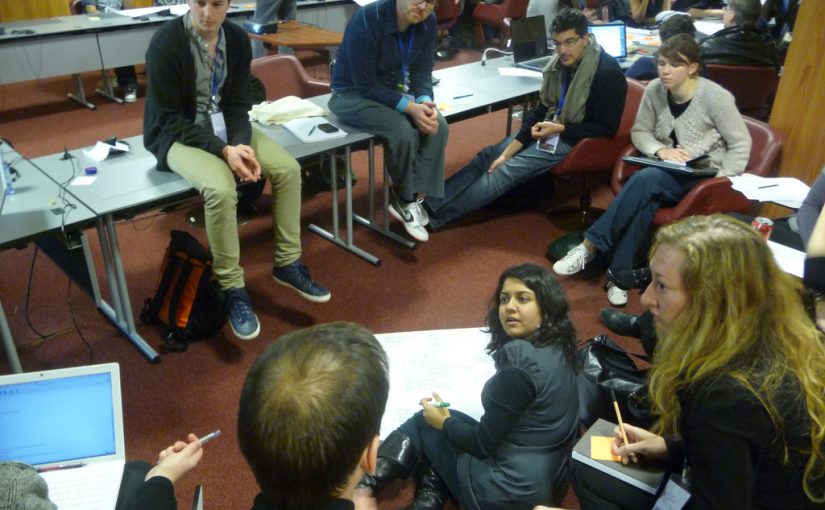The other day I took part of a round table on entrepreneurship for investigators organized by Universitat Pompeu Fabra to promote their latest incubator in collaboration with Barcelona Activa. Since I finished my PhD and co-founded Lift Lab one and a half year ago, young researchers have frequently inquired on my personal experience to move from academia to a private research agency. I often explain how we modeled our research methods and analysis techniques to fit into processes. Or I point our techniques to transform results into insights and solutions for diverse audiences (engineering, design, marketing, management). Beyond the evolution of our practice, there are a couple of ingredients that I believe greatly help initiating the trajectory of a business that spins out of an extended investigation (the PhDs of Nicolas and I in the case of Lift Lab):
Nurture a mixed network…
Lift Lab was already taking shape during our research as part of our constant efforts to communicate our ideas and results, using our blogs, pamphlets, talks and workshops as echo chambers. It was particularly important for us to confront our findings outside of a single research community as much as outside of academia. Reaching out of the walled gardens of academia, listening and reading about other practices is particularly important to refine and polish a voice, the kind of voice that makes research finding more tangible and accessible in a life after academia. In our case, it helped us capture the interest of what-would-then-become clients and create diverse channels of communication with people that challenged our intuitions, confront our points of view and ultimately made our methods evolve. Prior to move out of academia, these contacts were already grasping the value we could produce in their contact. Ultimately, these channels exposed, nurtured and also generated some sense of legitimacy that we use to further inspire and provoke.
… to benefit from a community …
As a consequence, our business thrives on this ability to involve multiple practices and networks for question formulations, data collection and solution creation. Our links to academic institutions (e.g. following master or PhD students) provide unique opportunities to further polish our research methods and well as new techniques and latest findings. With our experience in academia, it comes at very little cost and it is very rewarding. In parallel, we like to expend our network based on our curiosity with partners, “extreme users” and anybody we can learn from. The Lift community reflects very well this access to different practices, the confrontation of ideas/methods/interests and the access to domains and problems we never suspected we could be engaged int. When mobilized, this type of network provides resources for a small agency like ours to extend the range of our services and share risks in a bid.
… that helps (among other things) correct the execution …
A few concepts spun out of our PhDs, but none of them were ready to even remotely consider a product or service. Nevertheless, we like to engage with our clients to test the maturing concepts (e.g. social navigation). It helps refining the ideas, evaluate them with users and our network. Through this iterations, clients and partners might invest in the idea and engage resources. In any case, the exercise delivers keys that shape the execution of a concept that is very often more important than the idea itself. Once again the capacity to transfer results and intuitions into innovative prototypes is deeply rooted in our ecosystem of friends and partners.
… and forces to stay humble but assertive.
We found out that leaving academia improved our ability to formulate our methods particularly thanks to the diversity of constraints that demand a diversity of techniques. However, we make efforts in keeping the ideological approach of a researcher intact. It implies staying humble, not starting an investigation with a priori assumptions and not being afraid to express dots. When conveyed with assertiveness, this posture of the researcher driven by doubts but confident in its methods is what makes our value.
Why do I blog this: The paths out of academia are not paved, particularly because completing a PhD today differs from 15 years ago. Researchers must adapt to the increasing speed of knowledge sharing without necessarily grasping the opportunities to cross-pollinate. Beyond incubators, the mixed networks I describe here represent a support that helps concepts and a business mature
